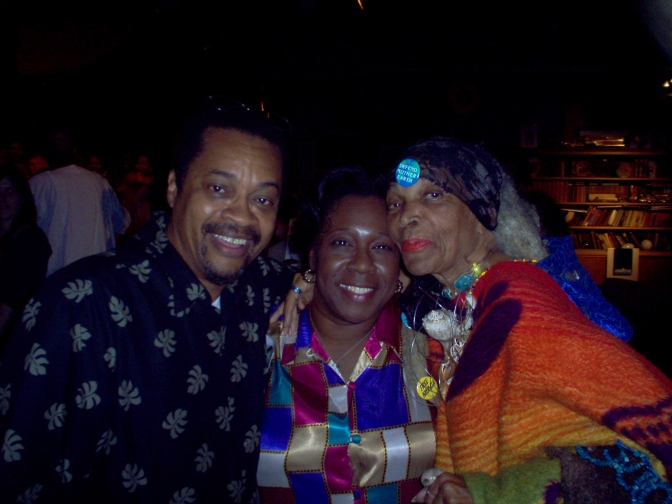One of the great ironies of the racist outbursts by South Carolina politicians against President Obama this year (take your pick, Sanford, DeMint, Wilson) is the assumption on their part that these white conservatives have an entitlement to consider themselves the “real Americans.”
They supposedly represent the state with the largest percentage of African-American residents — South Carolina. There’s a reason for that. The first non-indigenous settlers in what is now the United States were blacks who landed at Chickoree, South Carolina in 1526–almost a century before the Mayflower and Jamestown.
If you want to understand how wrong their premise is, it is worthwhile to take the opportunity to explore the number of national parks and landmarks along the southeast coast which include the Sea Islands of South Carolina, Georgia and Florida.
Had the opportunity Thursday to walk on the beach of one of the southern most locales, Amelia Island just north of Jacksonville, Florida.
My presentation Wednesday focused on one of the several black landmarks in the Timucuan Ecological and Historic Preserve, Historic American Beach. The next morning, I went there to see the shore that thousands of African-Americans enjoyed for recreation for decades when they could go nowhere else on the Florida coast.
As gratified as I was to see the tallest sand dune in Florida and the landmark signs posted by the State of Florida at the behest of MaVynne Betsch, granddaughter of Abraham Lincoln Lewis, I was equally shocked to see a number of for-sale signs for the lots closest to the beach.
With a Ritz Carlton on one side and a slew of luxury condos on the other, American Beach is in the bullseye of developers who would make it just another gated community like those we passed on the highway there.
An heroic group of black property owners, the American Beach Property Owners Association, has held the fort, retaining 100 acres of the original 200 acres purchased by Lewis in 1935. Nassau County is building a new community center in the midst of the residential area.
However, the oceanside clubhouse is abandoned and in disrepair. That means there isn’t really a business model to sustain the kind of tourism and recreation the area once provided. Either private interests, philanthropists or government agencies should act quickly to prevent more of the gargantuan houses that have begun to spring up on American Beach.
President Obama’s recent vacations to national parks and to Martha’s Vineyards should help remind African-Americans of their historic connection to the land and to the shore.
In addition to American Beach, the Timucuan Preserve contains the Kingsley Plantation, where the co-owner was a Senegalese woman named Anna Kingsley, subject of a recent play performed in Jacksonville.

Jacksonville’s public television station is planning a special on the Timucuan preserve. However it will take urgent action to preserve the vision that a series of African-American pioneers, including freedmen and women who trekked to Amelia Island during the Civil War, sought to forge over the past two hundred years.
There is no more American place than American Beach.
My family has held a family reunion for the past 29 years. Two of the years, we have hosted the Holt Family Reunion at American Beach and truly enjoyed ourselves. Although I live just outside of Orlando, a mere 2 hours away from Jacksonville and American Beach, it would be heart wrenching to see our beach destroyed! The majority of my family lives in Jacksonville and I will contact them to see in what way we can help to preserve this national treasure.
I moved to Jacksonville Florida from Birmingham Alabama some years ago. The two place that I visited are Rosewood (Outside Gainesville) and American Beach. The simple answer to American Beach is getting the For Sale Properties into the hands of those that can and will redevelopment them with Heritage in mind. Over the next 90 days, I will take a drive to American Beach to survey the area, validate the numbers and report them to websites that are Heritage friendly.
I was born in Los Angeles and live in Berkeley, CA, where I graduated with degrees in both art and law. My brother, Dr. George Price, is an author and professor of both Native and African American History at the University of Montana. He has traced part of our ancestry back to the Passamasquady Indians who (unfortunately) welcomed the pilgrims. I would love to visit the historic American Beach. I originally read about it a few years ago in both Essence and Coastal Living magazines. Are there any particular upcoming festivities you would recommend attending? I would also appreciate a recommendation of a reasonably priced hotel or bed & breakfast. Thank you for your assistance. Sincerely, Paula Price deJoie
Everybody makes a few mistakes :} There is a black-owned inn there on the beach. The American Beach Inn. We used its address to find the beach on GPS. I’d go to the American Beach Property Owners Association web page for ongoing activities. Your brother would have enjoyed the 40th anniversary of ethnic studies conference at SF State this week. Am in your hometown this weekend as they hold a conference on the future of black arts in LA at the Nate Holden Center on Washington and LaBrea, old Ebony Showcase Theatre.
check out our new portal at blackmoney.com
visit our new portal at blackmoney.com